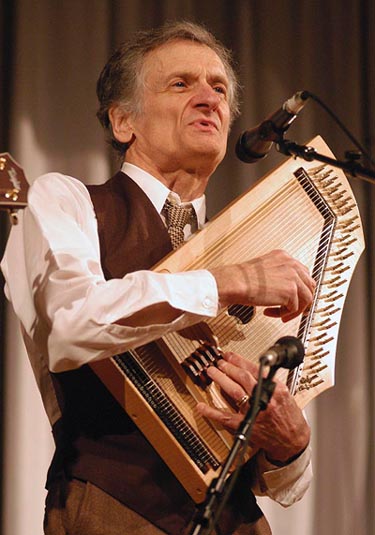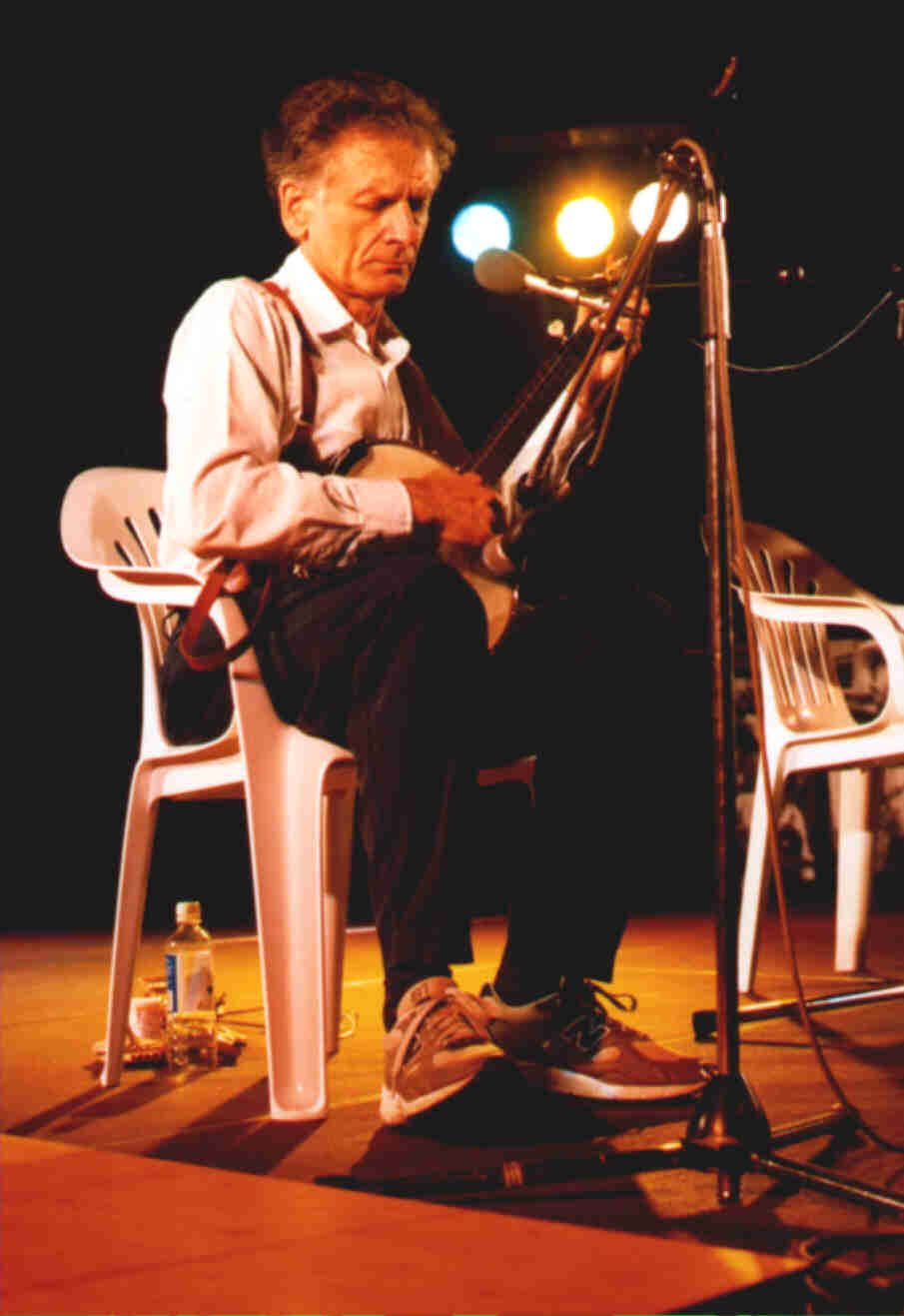Published at GratefulWeb.net and CountryMusicPride.com
My Grandmother, Edith Bissette, grew up in a musical family in rural Virginia and North Carolina in the 30s and 40s as the changes Mike Seeger describes were taking place. She expands on what Mike describes above as she tells us not only what the advent of radio was like in the rural South, but what life and music were like as well.
My Grandmother, Edith Bissette, grew up in a musical family in rural Virginia and North Carolina in the 30s and 40s as the changes Mike Seeger describes were taking place. She expands on what Mike describes above as she tells us not only what the advent of radio was like in the rural South, but what life and music were like as well.
She and her brothers played the traditional music of the rural South. Her brothers played on the radio when radio was new. By the 60s, musicians like them, every day people playing in their homes and with friends would, in part through the efforts of Mike Seeger, began to influence the way all genres of American music sound today. We hear echoes of the music they played, the traditional music of the Southeast in today's most popular songs.
The advent and growth of recording, radio and the Internet, new frontiers, have always shaped, and continue to shape music as well. Mr. Seeger has recorded traditional American music for decades. His parents were among the first people to do so. He described the impact of technology on American music to me in our talk:
"The whole way that we deal with music now is very different than prior to 1925, when we started recoding in earnest. The first recording was in 1922. It took off in 1925, shortly after electricity made it possible to record a guitar. Before you couldn't, it was too quiet, too subtle.
"The whole idea of being able to hear somebody you never heard face to face was an amazing change. It sped up the development of American music. So did increasing urbanization, which was happening at the same time, the result of industrialization, which had also sped things up. It was a changing process.
"At first, radio was very much regional or local. The advent of the playing of recordings gradually changed that. This was during the 30's and into the 40's or so. At that time it began to expand, became less locally oriented. And it grew from there.
"Now the Internet is gradually broadening the whole thing, making it much more open to difference. Radio and recording changed the process of music into one that was commercial. In a way, the Internet is doing that a little by giving people who aren't necessarily pro's access to tools formerly only available to professionals. This makes the possibility of becoming a professional more or at least a professional as seen by Mr. Google, more available."
When I spoke with my Grandmother, to get the perspective of a performer growing up in a different time under different circumstances than Mr. Seeger, but who also witnessed and participated in the evoloution of traditional music, she said this:
"When they first came on scene it was in 30s during the Depression, 1929 or 31 or something", my Grandmother said, "my neighbors were the only people in the area who could afford one and everyone from miles around would go to their house every Saturday night to listen to it. Saturday night was only time you could get anything but news on it, and you usually got more static than anything else.

"A lot more people played music back then. My mother ordered an organ from Sears when she was first married and I loved to play when I was big enough for my feet to touch the pedals. By that time, my brothers had almost wrecked it.
"They used to run up and down the hall with it. I don't think it was very well constructed anyway, but they wrecked it. When I got older, I wanted a piano so badly I even promised my Daddy I'd never get married if he'd get me one. But it was the Depression, and we couldn't afford it. I learned to love music playing the organ.
"You wouldn't know it from that but my brothers were musically inclined too. A lot of people on my mothers' side were. We mostly learned from our uncle, who played guitar. He would drink and then come by the house. My mother didn't appreciate him coming by when he was drinking, but he would and he would bring his guitar and sit on the steps and play.
"I picked it up by ear. We all did. It takes more than learning from a book for anyone to be an accomplished musician of any magnitude I think it has to be somewhere in your genes. My mothers' younger sister played guitar when she was young.
"You have to just have it somewhere in your bones to want to pick up an instrument, especially without music. Religious songs were written down but we didn't play those. Song sheets were popular at the time but we didn't have them. We made them up. To do that, you have the something it takes or don't.
"People played all kinds of things back then, whatever they could make or afford; guitars, accordions, banjos, and zithers. The first instrument brother my brother had he made from gourd. It had 3 strings. He graduated to a cigar box, built a staff on the box. He went from there to being able to buy a cheap one guitar. Eventually he got a Gibson.
"My brothers started playing guitar with 2 other boys in a band called The Rambling Hustlers. They would play at parties. A friend got them on a Saturday broadcast from Rocky Mount. I practiced with them but didn't play on the program.
"I never even thought of a woman going with 4 men to play on a radio program somewhere at that time. My Mother wouldn't have let me. Things weren't nearly as open they are now. It would have given me a bad reputation to go. People were old fashioned in their thinking then. There was nothing modern in my day.

"Old Man Depression didn't start growing a full beard until 37 in the country where I was, we had an easier time than people in the city did I think. We could grow our own food. We did a lot to help each other, worked together as a community.
"We started coming out of it in the early 40s with World War II. People started thinking more about entertainment. By that time radio was national, and more people were able to buy them. Around that time, there was a barn dance in Richmond on Saturday nights called the Old Dominion Barn Dance.
"A woman named Sunshine Sue had a show there that was broadcast on the radio. She had the Carter sisters perform I think, I don't remember who but remember seeing them. Mother Maybelle was there every Saturday. I didn't go every Saturday but I went often.
"It seems Mother Maybelle and her daughters were living in Ashland at the time because of her husband. I remember a friend of mine pointing out their farm there. They may have went to Nashville and the Opry from there, and then June met Johnny Cash. I'm not sure of it though.
She didn't realize when she went to the Barn Dance to see Mother Maybelle play that she was watching someone who's guitar style, along with her families' music would influence the way not only Country music, but other American genres would be played from that time on, but she was. The Carters were, in a sense, our first Pop stars, touring and recording songs that remain popular today; "Keep on the Sunny Side", for example.
Not only the hundreds of songs recorded by the Carter family but many of the traditional songs my Grandmother remembers playing have remained popular. They're mostly known now as rock or pop songs, popularized by countless musicians, including Bob Dylan, The Grateful Dead, and Johnny Cash.
I didn't go into that with my Grandmother. I think she's happier not knowing. She'd balk at the very name of The Grateful Dead, I'm certain. But I was curious to know if she'd heard any of the songs I knew before they were recorded. She could only remember one. She said there was a man who worked with her family on their farm. On his day off, he would walk to the nearest city. She said he sang the same song each time he went off down the road. When I asked her what it was, she started to sing what you may recognize as a Grateful Dead song:
"Goin' down the road, feelin' bad.
Goin' down the road, feelin' bad.
Goin' down the road, feelin' bad, bad, bad.
Don't want to be treated this-a-way."
The hair on my arms stood up. I felt like he'd walked to the crossroads of past and future, and sang loud enough to be heard in the present. In a sense he had, via the True Vine. And so the voice of one man walking a hard and lonely road echoes through decades of popular music.

No comments:
Post a Comment